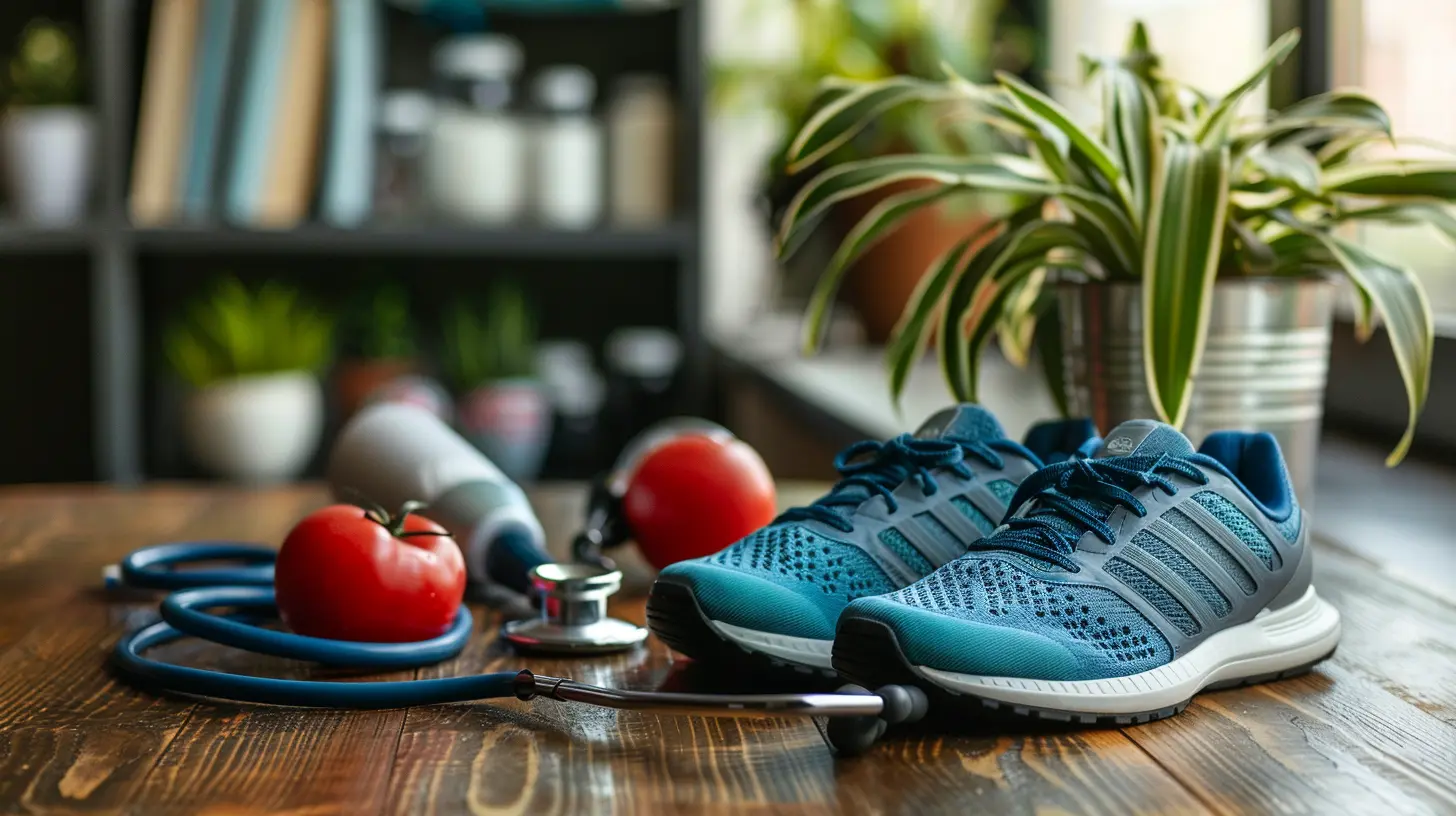13 December 2024
When we think about boosting academic performance, our first instinct is often to focus on study habits, tutoring, or spending more hours in front of a computer. But what if I told you that there's an often-overlooked factor that could significantly influence your academic success? That factor is physical activity.
Yep, you read that right. Moving your body doesn't just benefit your waistline; it can also do wonders for your brain. You might be thinking, “Isn’t physical activity all about sports and fitness? How could that possibly help me in the classroom?” Well, as it turns out, the connection between physical activity and academic success is stronger than most people realize.
In this article, we’re going to dig deep into how getting your heart pumping can also get your brain working. So, if you're curious to learn how a little bit of sweat can skyrocket your grades, keep reading!

The Brain-Body Connection: Why Physical Activity Matters
Let’s start with a simple truth: Our bodies and minds are deeply interconnected. It’s like having two parts of the same machine. If one part of that machine is sluggish, the other part can’t work at full capacity. When you engage in physical activities—whether it’s jogging, dancing, or even a brisk walk—you are essentially giving your brain a power boost. How? Well, there are a few biological processes at play here.Increased Blood Flow to the Brain
Think of your brain as a car engine. The harder it works, the more fuel it needs. Physical activity increases blood flow, which carries oxygen and essential nutrients to the brain. More blood flow means more fuel for your brain, helping it function better. This is particularly beneficial when you’re trying to focus, solve problems, or memorize information.Release of Brain-Boosting Chemicals
Ever heard of endorphins? These are chemicals released in the brain during physical activity, and they’re often referred to as "feel-good" hormones. But it’s not just endorphins. Physical exercise also triggers the release of neurotransmitters like dopamine, norepinephrine, and serotonin—all of which play a key role in mood regulation, memory, and learning.Neurogenesis and Brain Plasticity
Sounds complicated, right? But stick with me. Neurogenesis is the process where new neurons (brain cells) are formed in the brain. Physical activity promotes neurogenesis, particularly in the hippocampus, the area responsible for learning and memory. Brain plasticity, on the other hand, refers to the brain’s ability to adapt and reorganize itself. Exercise enhances this plasticity, making it easier to learn new concepts and retain information.So, by getting your body moving, you’re essentially priming your brain for success.

How Physical Activity Improves Cognitive Abilities
Now that we’ve covered the biology of how physical activity affects the brain, let’s talk about the tangible benefits you can expect in the classroom. Here’s how regular workouts can give your academic performance a serious upgrade.Improved Focus and Concentration
You know those days when you just can’t seem to focus on anything? Physical activity can help with that. Studies have shown that students who engage in regular exercise are better able to concentrate and stay focused during lessons. This happens because exercise increases catecholamines—chemicals in the brain that improve attention and focus.Think of it like rebooting your computer. Sometimes, when things get sluggish, a quick restart is all it takes to get everything running smoothly again. Similarly, a quick physical activity session can reset your brain, helping you focus better on your studies.
Enhanced Memory Retention
If you’ve ever crammed for a test only to forget half of what you studied the next day, you know how frustrating it can be. But what if I told you that physical activity could help you retain information longer? When you exercise, your brain releases a protein called Brain-Derived Neurotrophic Factor (BDNF), which supports the growth of new neurons and strengthens existing ones. This helps improve memory retention, making it easier to recall information when you need it most—like during an exam.Sharper Problem-Solving Skills
Ever get stuck on a challenging math problem or a tough essay prompt? Physical activity could be the key to breaking through that mental block. Research shows that exercise enhances our ability to think creatively and solve problems. It’s like when you take a break during a long study session, and suddenly, the answer to a tough question pops into your head. Physical activity helps stimulate the brain, making it easier to analyze situations and come up with solutions.Stress Reduction
Let’s face it: School can be stressful. There are exams, assignments, and the constant pressure to perform well. The good news? Physical activity is one of the best stress-busters out there. Exercise lowers cortisol—your body’s primary stress hormone—and boosts endorphins, which help you feel more relaxed and focused. When you're less stressed, you're more likely to perform better academically.
The Impact of Physical Activity on Mental Health
It’s not just your grades that benefit from physical activity—your mental health gets a major boost too. And when your mental health improves, academic success often follows. After all, it’s hard to focus on schoolwork when you’re feeling anxious, depressed, or overwhelmed.Reduced Anxiety and Depression
Multiple studies have shown that regular physical activity can reduce symptoms of anxiety and depression. Exercise serves as a natural mood enhancer, helping to combat the negative feelings that can often accompany academic pressure. When you feel better emotionally, it becomes easier to tackle schoolwork with a clear and positive mindset.Improved Sleep Quality
We all know how important sleep is for learning and memory. But did you know that physical activity can help you sleep better? Exercise helps regulate your sleep-wake cycle, making it easier to fall asleep and enjoy deeper, more restorative sleep. A good night’s sleep results in better cognitive function, improved concentration, and enhanced memory—all essential for academic success.Boosted Self-Esteem and Confidence
When you engage in physical activity, especially structured sports or fitness programs, you often set and achieve goals. Whether it’s running a mile faster or mastering a yoga pose, these small victories can significantly boost your self-esteem. And when you feel confident in your physical abilities, that confidence often spills over into your academic life. You’re more likely to take on challenges and believe in your capacity to succeed.
How Much Physical Activity Is Enough?
At this point, you might be wondering, “Okay, I get it. Physical activity is great for my brain. But how much do I need to do?”Good question! The Centers for Disease Control and Prevention (CDC) recommends that children and adolescents get at least 60 minutes of moderate-to-vigorous physical activity each day. This could include activities like walking, running, swimming, or cycling. But it doesn’t have to be all at once! You can break it up into smaller chunks throughout the day.
For adults, the CDC suggests at least 150 minutes of moderate-intensity exercise per week. That’s just 30 minutes a day, five days a week. And remember, something is always better than nothing. Even a 10-minute jog or a quick session of jumping jacks can have positive effects on your brain and body.
Incorporating Physical Activity Into Your Daily Routine
Now that we’ve established the importance of physical activity, how do you fit it into your already busy schedule? Don’t worry—I’ve got some practical tips for you.Walk or Bike to School
If you live close enough, consider walking or biking to school instead of driving or taking the bus. Not only will this help you get in some physical activity, but it’ll also give you a mental boost before you even sit down in class.Take Active Study Breaks
Instead of scrolling through social media during a study break, try doing a few minutes of physical activity. Whether it’s stretching, doing jumping jacks, or even dancing to your favorite song, these short bursts of movement can help reset your brain and keep you focused when you return to your studies.Join a Sports Team or Fitness Club
If you enjoy group activities, consider joining a sports team or a fitness club at school. This can be a fun way to stay active while also making new friends and building teamwork skills.Use Technology to Stay Active
There are countless fitness apps and YouTube channels that offer free workout routines, many of which are short and easy to do at home. Whether it’s yoga, HIIT, or dance workouts, find something that you enjoy and make it a regular part of your routine.Conclusion: A Holistic Approach to Academic Success
At the end of the day, academic success isn’t just about hitting the books harder. It’s about taking a holistic approach to your well-being—mind and body included. Physical activity offers a wide range of benefits that go beyond the gym and directly impact your ability to succeed academically.From improving focus and memory to reducing stress and boosting confidence, the role of physical activity in academic success is undeniable. So, the next time you’re tempted to skip that workout in favor of more study time, remember this: Moving your body could be one of the smartest moves you make for your brain.













Layla Flores
Physical activity fuels the mind! By integrating movement into our daily routines, we enhance focus, boost creativity, and elevate academic performance. Let's champion an active lifestyle for a brighter, more successful future in education!
January 30, 2025 at 11:57 AM